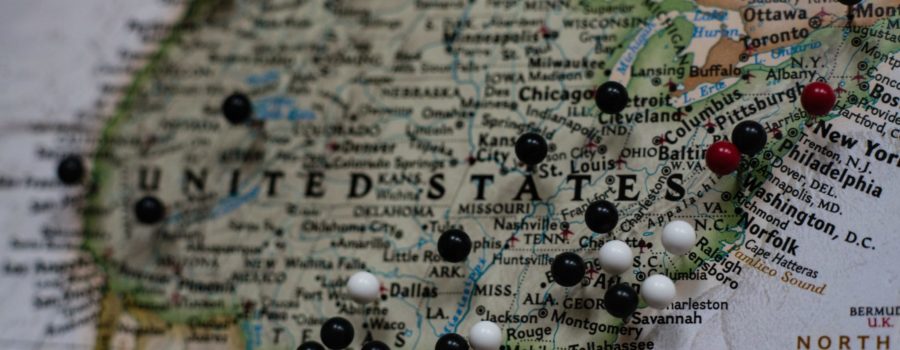In our latest monthly investment update for August 2019, we take a look at how the global investment markets, economy and commodities are performing.
The FTSE 100 index of leading UK company shares closed at the end of July at 7,586.78, rising again during the month. The index rose by 161.15 points or 2.17% during the month; the second consecutive month of growth for the index.
Leading UK company shares slipped back from their 11-month high on the final day of trading in July, experiencing its most significant one-day fall in two months. This sharp daily fall was partly due to poor results in financial and retail sectors, as well as export-led companies due to Pound Sterling recovering from a 28-month low.
CMC Markets analyst Michael Hewson said:
“The picture for Q2 was always likely to be much more tricky given that the UK economy slowed quite significantly during April and May, in the wake of the extension of the Brexit deadline at the end of March.”
In the US, investor attention was focused on a decision by the US Federal Reserve to cut benchmark interest rates by 0.25%. This anticipated rate cut is seen as an “insurance cut” against hawkish US trade policy and slowing global economic growth.
According to President Donald Trump’s former chief economic adviser Gary Cohn, Trump’s trade war with China is backfiring and having a negative impact on the US economy. Cohn told the BBC that tariffs had had a “dramatic impact” on the state of US manufacturing and capital investment.
In the UK, the appointment of a new Prime Minister and pro-Brexit cabinet has increased the likelihood of the UK leaving the European Union by the end of October, without a trade deal.
Prime Minister Boris Johnson and his government have announced a doubling of funding available to prepare for a no-deal Brexit, raising the amount available to £2.1bn. This funding will include the cost of more border force officers and also upgrades to transport infrastructure at ports. Announcing the funding boost, newly appointed Chancellor Sajid Javid, said:
“With 92 days until the UK leaves the European Union, it’s vital that we intensify our planning to ensure we are ready. We want to get a good deal that abolishes the anti-democratic backstop. But if we can’t get a good deal, we’ll have to leave without one. This additional £2.1bn will ensure we are ready to leave on 31 October – deal or no-deal.”
As a result of the government’s no-deal Brexit stance, Pound Sterling fell sharply in July. It fell against a basket of mainstream currencies, including the US Dollar and the Euro. A weak pound is bad news for tourists this summer, but positive for exporters and also those listed companies with overseas revenue, accounting for continued strong performance in the FTSE 100, with its large proportion of overseas revenue-boosting profits when brought into the UK.
A continued weak Pound Sterling is likely to increase the cost of importing goods and services, thereby pushing up price inflation. Rising price inflation could need to be tackled with an interest rate rise, although the Bank of England Monetary Policy Committee is likely to be cautious about hiking rates during times of economic uncertainty.
The latest UK price inflation figures show inflation remaining in line with the Bank of England target for the year to June. The Consumer Prices Index (CPI) measure of price inflation stayed at 2% in June, in line with expectations from economists.
According to thinktank the National Institute of Economic and Social Research, there is a 25% chance that the UK has already entered economic recession, ahead of a no-deal Brexit on 31st October. The potential for a slowdown in Britain is driven by slowing global economic growth.
Official figures show the UK economy returned to growth in May, with UK GDP rising by 0.3% compared to a month earlier.
A slowdown in global growth, along with the prospect of a no-deal Brexit, is also hurting European economic growth. In the eurozone, preliminary Eurostat data shows growth of just 0.2% between April and June, down from 0.4% in the previous quarter.
This slowing growth in Europe has fueled speculation that the European Central Bank will implement a series of measures to stimulate the economy. This could include interest rate cuts and further quantitative easing to purchase additional Eurozone bonds.
House prices in major cities in southern England, including London, rose at their slowest rate in more than seven years in June. The latest house price index from Zoopla reported growth of 0.7% in June, their slowest growth since January 2012. Major northern cities rose by an average of 3.6% in June.
Richard Donnell, research and insight director at Zoopla, said: “There is a clear imbalance between supply and demand for housing across southern cities and this explains why house price growth in these cities is at its lowest level since 2012.”
The latest house price survey from Nationwide Building Society shows annual price growth of just 0.3% in July, with the average home now valued at £217,663. According to Nationwide’s chief economist Robert Gardner, new buyer inquiries increased a little last month, but key consumer confidence indicators remain subdued.
Oil prices rose at the end of July ahead of expectations of the interest rate cut by the US Fed, which later materialised. West Texas Intermediate (WTI) crude rose by 1.2% to reach $56.87 a barrel, with benchmark Brent crude rising by 0.4% to reach $63.71 a barrel.
The interest rate cut is expected to stimulate economic activity, leading to a rising demand for oil in the US, the world’s largest consumer of oil.
The benchmark 10-year government bond (gilt) is yielding at 0.63% at the start of August, falling from 0.82% a month earlier.
£1 currently buys $1.2117 or €1.0970. The Forex Gold Index is $1,427.55/oz, and the Silver Index is $16.01/oz.

